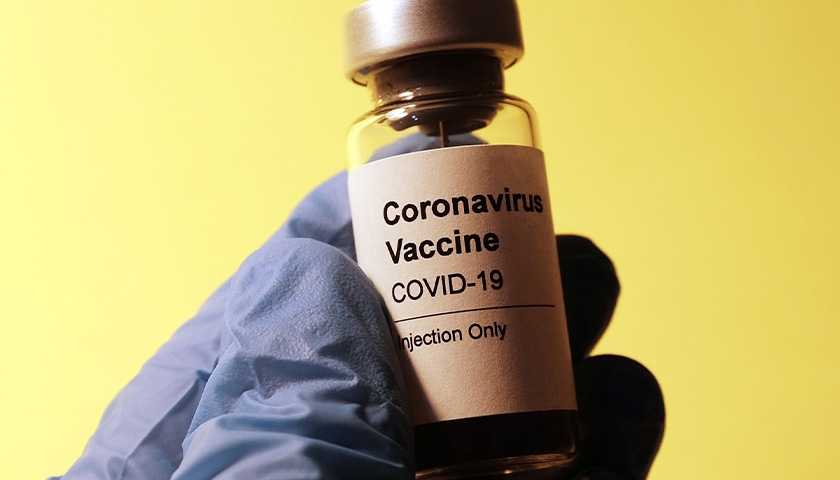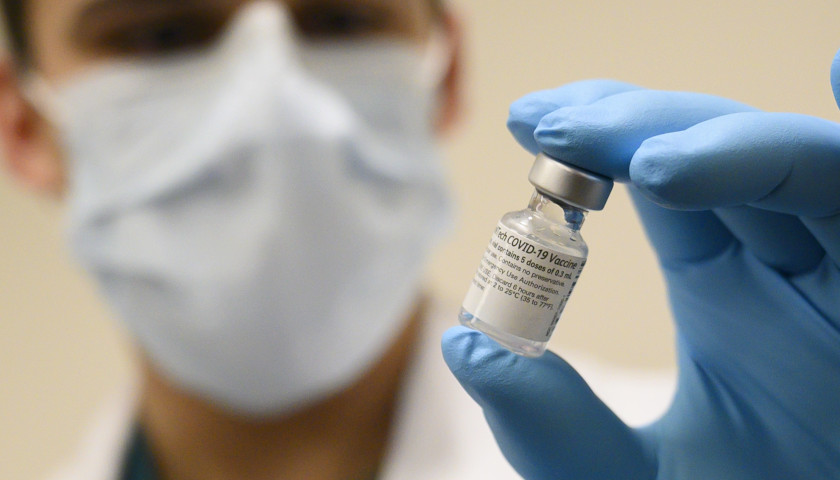The Tennessee Senate reamended a bill to strike an amendment allowing higher education to mandate the COVID-19 vaccine. Under the latest amended version of the bill, institutions of higher education may only mandate the vaccine for health care students. These public colleges or universities may enforce those mandates so long as they don’t own or control the health care facility.
Essentially, the higher education mandate would only be necessary for certain students involved in a private health care facility that requires the COVID-19 vaccine. The amendment would apply to students in medicine, dentistry, pharmacy, or any other health care profession.
As The Tennessee Star reported, the version of the bill presented as late as Wednesday included the amendments allowing all public colleges and universities to mandate the COVID-19 vaccine.
The Senate’s third and final hearing of the bill on Thursday offered an explanation for the sudden change. State Senator Rusty Crowe (R-Johnson City) explained that the Senate Health Committee introduced this amendment because they felt it would be best to mirror the House amendment.
The decision to revert the bill to prior amended language was agreed upon by the sponsor, State Senator Janice Bowling (R-Tullahoma). It also removed language referencing the Jacob Nunley Act, which concerns requirements for meningitis vaccinations.
State Senator Heidi Campbell (D-Nashville) said that her constituents in the medical industry were concerned that the bill would remain law after the FDA fully approves the COVID-19 vaccine, beyond the emergency use authorization (EUA).
In response, Bowling said that the vaccines are prophylactic, not immunizations in the “classic sense of the word.” She asserted that they amount to treatments and therapies, on par with other recognized prophylactic treatments currently available for COVID-19 – such as hydroxychloroquine and vitamins D and C.
“The incidents of a personal medical decision to take a vaccine or not has always been a personal medical decision,” responded Bowling. “And, in the instance of the COVID-19 – coronaviruses morph, and we recognize that it’s going to morph, and they typically, as they morph become less lethal and more infectious but just less lethal. So this situation is almost over.”
Campbell said she disagreed. She said that medical professionals agree unanimously that those remedies cited by Bowling aren’t actually helpful. She also said that 700 public health workers signed a petition against the bill because it threatened their lives.
Medical professionals have been divided on the efficacy of prophylactic treatments, such as hydroxychloroquine.
To Bowling’s point that COVID-19 mutations would become less lethal, Yarbro said that legislators couldn’t possibly know their potential lethality.
As a word of warning for those legislators relying on the FDA and CDC to make their decision on the bill, State Senator Frank Niceley (R-Strawberry Plains) asked that they research the “Tuskegee Syphilis Experiment.” The Tuskegee Study was an unethical CDC experiment on 600 Black men, promising them that they would be cured of their syphilis and other ailments. The original project was slated to last 6 months, but extended to 40 years without giving the trial subjects adequate treatment for the disease.
Niceley also reminded legislators that the FDA approved oxycontin, which he noted had killed more people in his district than COVID-19.
“Just because the CDC and FDA [are] all on-board, that doesn’t mean a lot to a man like me or anyone who studies or history,” said Niceley.
The Senate vote fell along party lines for the most part, with all Democrats voting against the legislation. State Senator Richard Briggs (R-Knoxville) was the only Republican to vote against it.
The bill now heads to the governor for final approval.
– – –
Corinne Murdock is a reporter at The Tennessee Star and the Star News Network. Follow her latest on Twitter, or email tips to [email protected].






Those going into healthcare should take note of this. Their safety with regards to getting something put into their bodies that no one has any idea about is secondary. There is absolutely no indication that the shot is of any benefit as far as protecting them or their future patients.